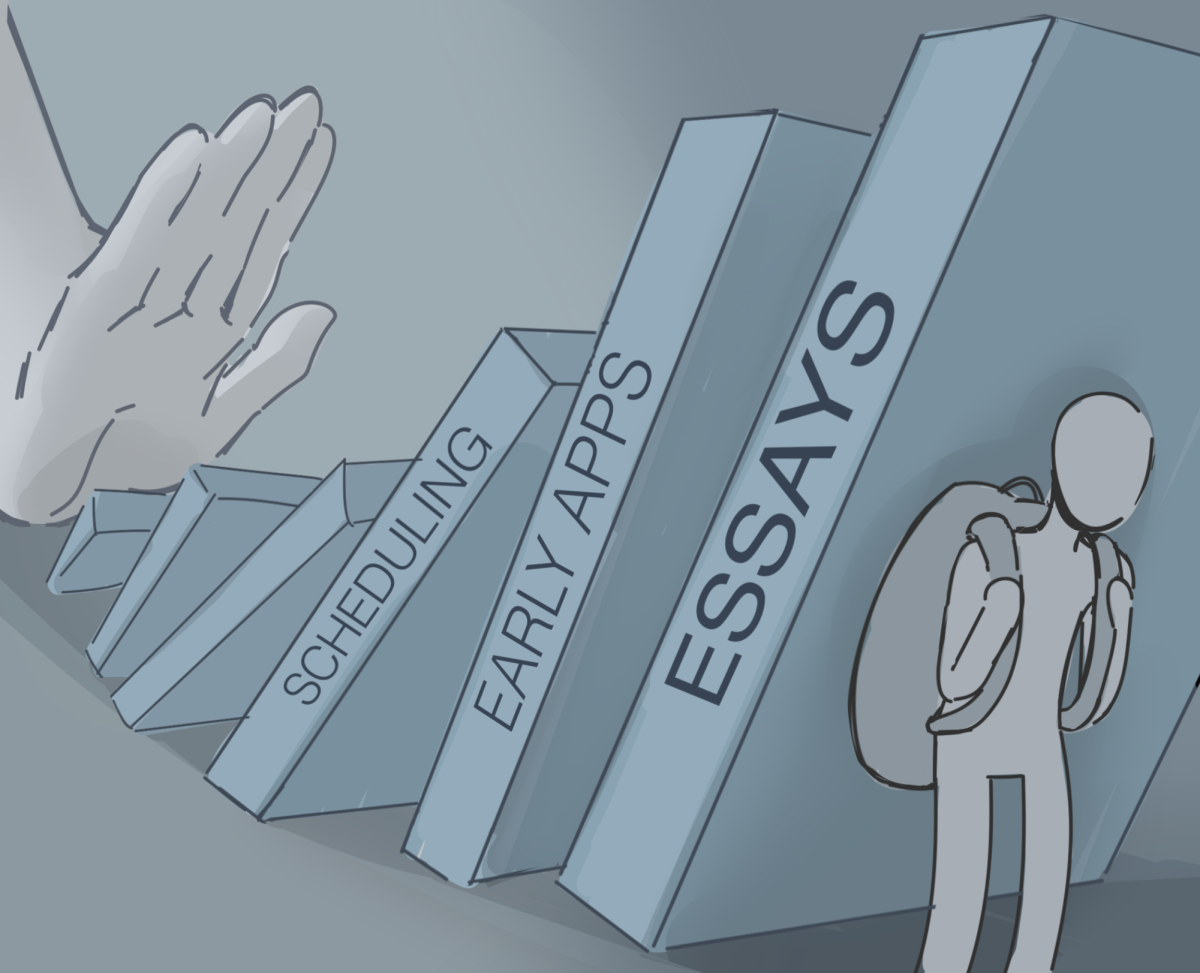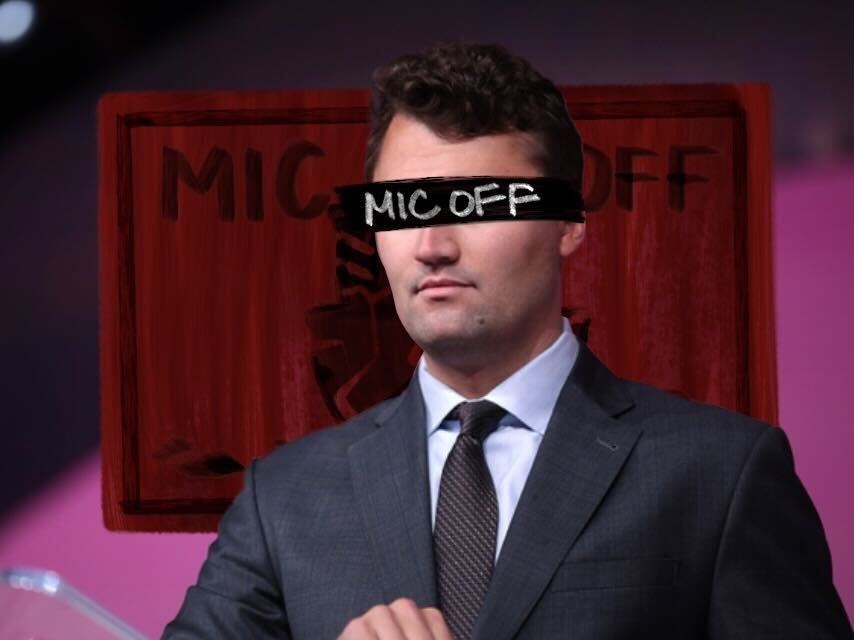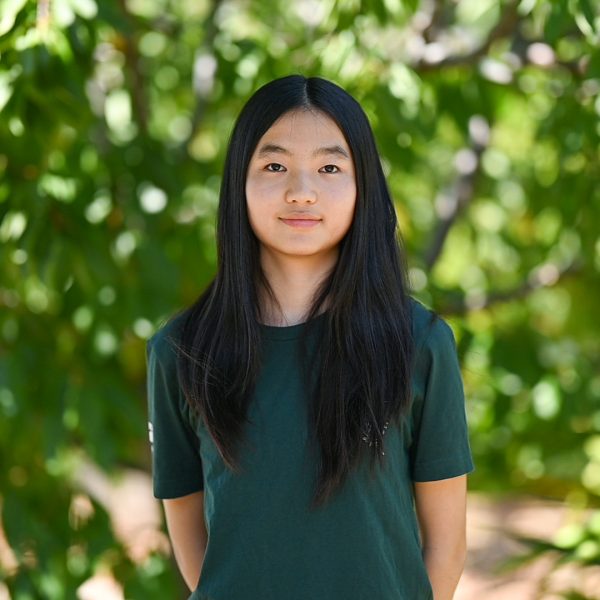“The Harker School: K-12 College Prep.”
Harker’s consistent success in the college admissions process bolsters its reputation as a “college prep” school –– even one meriting a $64,800 a year and growing price tag. But are we getting our money’s worth?
Harker’s four college counselors advise a 200-person class, a counselor-student ratio far lower than most institutions nationwide. However, students don’t meet with them until the second semester of junior year, while academic counselor Kelly Horan is tasked with all questions for almost the first three years of high school.
“We do call our academic planning ‘college counseling,’” Horan said. “When [students] are that young, [academics] are the crux of college counseling. We are more focused on the journey and making kids individuals.”
Although Harker’s choice to shield students from the admissions process seeks to cultivate authenticity, it distances Harker’s internal counseling from families new to the process. Early anxieties about the process in an increasingly competitive admissions landscape often push students and their families to seek outside counseling.
The majority of respondents in an anonymous poll posted to Schoology cited parental pressure and a lack of understanding of the process as their reasons for pursuing outside counseling. These packages offer services from essay reading to extracurricular and summer program advising and can cost up to tens of thousands of dollars.
Students and families feeling the need to seek outside counseling, spending additional thousands, should not be the norm.
Our counselors boast decades of combined experience — experience that should be shared more regularly and readily. Proactively correcting myths and misconceptions about the high school experience and admissions early on helps allay anxieties and empower students in their decision-making rather than leaving them to fend for themselves along their paths of “organic” discovery.
Counseling already meets with parents in the early high school years, clarifying what to look for in a summer program, among other topics. Looping underclassmen into these conversations gives them the tools to define their education for themselves.
It’s also time for us students to evaluate what we want out of a college prep process.
In exchange for Harker’s steep tuition, we receive the “name brand” of our course rigor, and access to unprecedented exploration and academic support at the high school level. Arguably, the best use of these opportunities would be true intellectual development and curiosity –– not the highest GPA possible. The same philosophy extends to our extracurriculars, our leadership and more. But in pursuit of the acceptance from our university of choice, we often abandon true passion for the ‘perfect’ resume.
Is it fair to ask our counselors to help us to tell our authentic stories, if we aren’t authentic with ourselves?
Realistically, we won’t stop appealing to an admissions system that defines much of our future success, and one that is a primary draw for our school. But to improve our system, we must honestly reflect on ourselves. That can’t be accomplished without transparency and support from college counseling and administration.
We must meet each other in the middle: honesty about what we expect of each other will clear the path to find our organic journey forward together.




![LALC Vice President of External Affairs Raeanne Li (11) explains the International Phonetic Alphabet to attendees. "We decided to have more fun topics this year instead of just talking about the same things every year so our older members can also [enjoy],” Raeanne said.](https://harkeraquila.com/wp-content/uploads/2025/10/DSC_4627-1200x795.jpg)


















![“[Building nerf blasters] became this outlet of creativity for me that hasn't been matched by anything else. The process [of] making a build complete to your desire is such a painstakingly difficult process, but I've had to learn from [the skills needed from] soldering to proper painting. There's so many different options for everything, if you think about it, it exists. The best part is [that] if it doesn't exist, you can build it yourself," Ishaan Parate said.](https://harkeraquila.com/wp-content/uploads/2022/08/DSC_8149-900x604.jpg)




![“When I came into high school, I was ready to be a follower. But DECA was a game changer for me. It helped me overcome my fear of public speaking, and it's played such a major role in who I've become today. To be able to successfully lead a chapter of 150 students, an officer team and be one of the upperclassmen I once really admired is something I'm [really] proud of,” Anvitha Tummala ('21) said.](https://harkeraquila.com/wp-content/uploads/2021/07/Screen-Shot-2021-07-25-at-9.50.05-AM-900x594.png)







![“I think getting up in the morning and having a sense of purpose [is exciting]. I think without a certain amount of drive, life is kind of obsolete and mundane, and I think having that every single day is what makes each day unique and kind of makes life exciting,” Neymika Jain (12) said.](https://harkeraquila.com/wp-content/uploads/2017/06/Screen-Shot-2017-06-03-at-4.54.16-PM.png)








![“My slogan is ‘slow feet, don’t eat, and I’m hungry.’ You need to run fast to get where you are–you aren't going to get those championships if you aren't fast,” Angel Cervantes (12) said. “I want to do well in school on my tests and in track and win championships for my team. I live by that, [and] I can do that anywhere: in the classroom or on the field.”](https://harkeraquila.com/wp-content/uploads/2018/06/DSC5146-900x601.jpg)
![“[Volleyball has] taught me how to fall correctly, and another thing it taught is that you don’t have to be the best at something to be good at it. If you just hit the ball in a smart way, then it still scores points and you’re good at it. You could be a background player and still make a much bigger impact on the team than you would think,” Anya Gert (’20) said.](https://harkeraquila.com/wp-content/uploads/2020/06/AnnaGert_JinTuan_HoHPhotoEdited-600x900.jpeg)

![“I'm not nearly there yet, but [my confidence has] definitely been getting better since I was pretty shy and timid coming into Harker my freshman year. I know that there's a lot of people that are really confident in what they do, and I really admire them. Everyone's so driven and that has really pushed me to kind of try to find my own place in high school and be more confident,” Alyssa Huang (’20) said.](https://harkeraquila.com/wp-content/uploads/2020/06/AlyssaHuang_EmilyChen_HoHPhoto-900x749.jpeg)
















